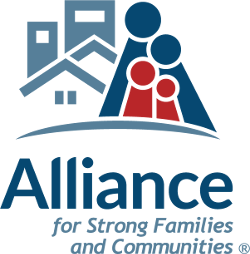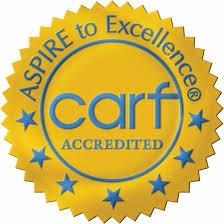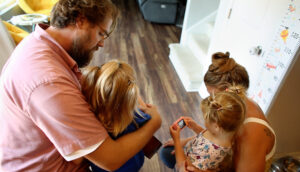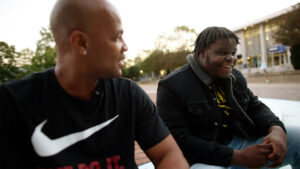Father’s Day usually means backyard grills and homemade cards, yet Father’s Day in foster care carries a different weight. For children who have endured loss or instability, a supportive dad—whether biological, foster, or kinship—can rewrite the story altogether. This post looks at the role of foster fathers, the hurdles they navigate, and why targeted supports such as The UP Center’s Dad 2 Dads initiative matter for kids and communities alike.
Why Foster Dads Shift Outcomes
- Academic stability. National Fatherhood Initiative studies show that children with engaged dads are twice as likely to earn A’s and 43 percent less likely to repeat a grade. For youth in care, who often trail peers by up to two grade levels, steady evening homework help is transformative.
- Emotional resilience. A dependable male presence helps kids manage anxiety, sleep more soundly, and engage more fully in counseling or school activities.
- Long-term permanency. State data sets indicate that placements including a father figure are about one-third less likely to disrupt within the first year, reducing additional trauma and system costs.
These numbers prove the importance of foster dads in turning short-term safety into long-term success.
Real-World Challenges Foster Fathers Face
Trust that starts at zero
Children who have cycled through homes often expect disappointment from adults. Foster dads must prove reliability through countless ordinary acts such as school pick-ups, consistent curfews, and calm responses to trauma triggers.
Trauma-informed discipline
Standard parenting advice can backfire when a child interprets correction as danger. Dads need strategies that connect before they redirect, blending firm boundaries with predictable empathy.
Schedule overload
Court hearings, therapy sessions, and teacher meetings stack onto full-time work. Without support, even dedicated fathers burn out.
These pressures show why father-specific mentoring and education programs are essential rather than optional.
How Dad 2 Dads Strengthens Fathers
The UP Center’s Dad 2 Dads operates as a comprehensive dads program designed for busy men who want to parent well:
- Weekly, interactive dad parenting classes—offered in person and online—cover trauma-responsive discipline, co-parent communication, and self-care.
- Individual coaching sessions guide fathers through court requirements, budgeting, and employment hurdles.
- Peer circles provide judgment-free space where dads trade strategies and build solidarity, creating organic father mentoring programs that last long after coursework ends.
In the past year, 67 men completed at least eight program hours. Follow-up surveys recorded better parent-child communication, fewer placement disruptions, and higher confidence in daily decision-making. Each of those successes ripples outward to siblings, teachers, and caseworkers who can then focus on growth instead of crisis management.
Father’s Day in Foster Care: Building Moments That Matter
Celebrations can trigger grief for children separated from birth families. Foster dads can make the day supportive by:
- Letting kids choose the agenda. A child-selected breakfast or park outing fosters agency and lowers anxiety.
- Acknowledging every dad in the story. When appropriate, help children send a message to biological fathers or male mentors; inclusion deepens trust.
- Creating tangible memories. Photos or ticket stubs from the day become grounding objects children can revisit when life feels uncertain again.
- Checking emotional temperature. Invite kids to share feelings ahead of time so surprises—good or bad—don’t derail the day. Planning together teaches healthy communication and respect for boundaries.
How Communities Can Back Foster Dads Year-Round
Individuals
- Share accurate resources on Foster care and adoption with friends considering the journey.
- Volunteer as a mentor in Dad 2 Dads, lending skills in finance, carpentry, conflict resolution, or simply lived parenting experience.
Employers
- Provide flexible leave for foster-parent duties; an afternoon off can keep a placement intact.
- Sponsor an entire cohort of dads through the program, covering childcare, meals, or technology stipends so participation never hinges on income.
Community Groups
- Host supply drives for sports gear or books that feature positive father figures, giving dads low-cost ways to bond with kids.
- Invite program staff to speak at civic clubs or faith gatherings; every new volunteer hour multiplies impact and raises awareness among potential foster families.
The Takeaway
Foster fathers are not placeholders; they’re catalysts for stability and growth. On Father’s Day—and every day—recognize the men who choose court benches, midnight homework help, and patient listening so kids experience steady love. Equip them through programs like Dad 2 Dads, volunteer your expertise, or advocate for father-friendly policies. Strong dads build strong families, and strong families build communities where every child can thrive.
Thinking About the Next Step?
Curious about fostering? The UP Center’s page on Foster care and adoption outlines licensing requirements, training timelines, and ongoing support. Even if parenting is not yet in your plans, sharing credible information widens the recruitment pool and dispels myths, ensuring more children meet the fathers they deserve.
Please help us support our foster dad community. All donations help!














